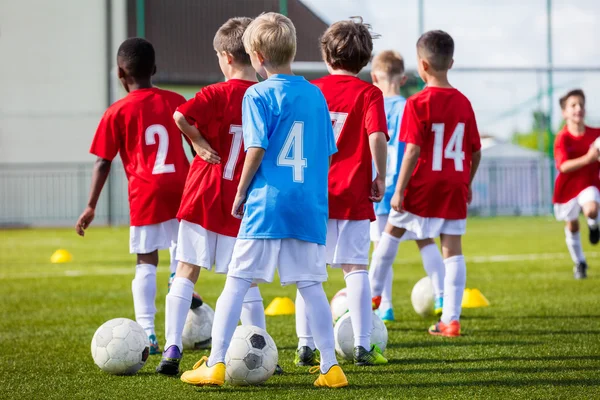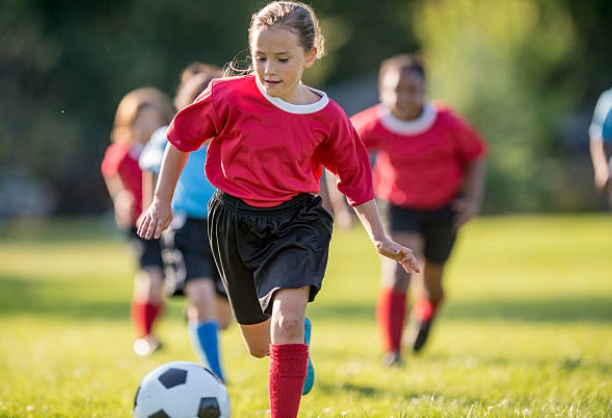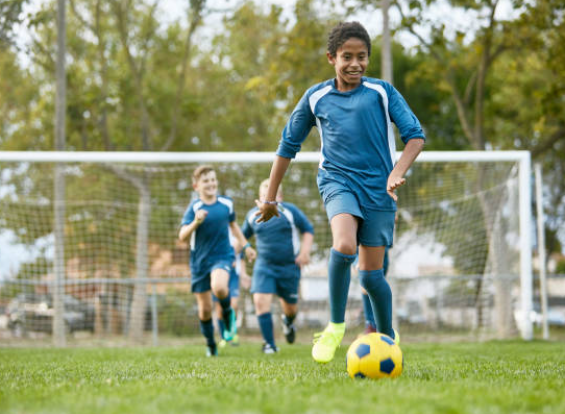The effect of 14 training sessions on the development of decision-making skills in U-13 soccer players.
El fútbol es un fenómeno social y deportivo. En consecuencia, la iniciación al fútbol tiene un potencial educativo y formativo en cuanto a la enseñanza y el entrenamiento. Por ello, el objetivo de este estudio fue verificar la influencia de 14 sesiones de un programa de entrenamiento basado en
Impact of temperature on physical and cognitive performance in elite female football players during intermittent exercise
There is limited research on female football players, especially related to their physical and cognitive performance under different climactic conditions. We analyzed the impact of a hot environmental temperature on physical performance and anticipation in elite female football players during a fati
Mapping talent pathways: A comparative study of developmental activities and practice structure in Brazilian and Spanish U-18 elite youth male soccer players
The purpose of this study was threefold: (1) to compare the engagement in various types and amounts of soccer activities during childhood and adolescence between Brazilian and Spanish elite youth soccer players; (2) to test what talent development pathway characterizes youth development in elite soc
Contribution of deliberate practice, play, and futsal to the acquisition of decision-making skills in Brazilian professional female soccer players
Previous research showed that deliberate practice and play contribute to developing decision-making skills in male soccer players. However, there is no evidence for female players. Therefore, this is the first study to analyse the contribution of deliberate practice, play, and futsal to develop deci
Developing cognitive and motor decision-making skills through tactical principles and small-sided games in youth soccer
This study aimed to verify the influence of 25 training sessions based on tactical principles and small-sided and conditioned games (SSCG) in developing cognitive and motor decision-making skills of U-12 soccer players. Participants were 25 U-12 elite male soccer players from a Brazilian first div
Variations of wellbeing measures between player’s participation in a match and aplaying position: a study of youth soccer players
Soccer is a sport characterized by combining high-intensity actions with low-intensity actions. This makes it a complex sport, where monitoring the impact of actions that occur both in training and in matches are of great interest to coaches. However, this interest has focused on physical and physio
The relationship between deliberate practice, play, and futsal in childhood and adolescence and the development of different decision-making skills in professional female soccer players
Soccer players’ ability to make efficient and quick decisions has gained more importance due to the increase in game speed in the last few years. Therefore, this study aimed to examine the relationship between the engagement in previous developmental activities in soccer and futsal with the qualit
Selected soccer players are quicker and better decision-makers in elite Brazilian youth academies
Studies in talent identification and selection showed that more talented players usually possessed better decision-making skills. Nevertheless, studies on this topic have not yet been carried out: 1) assessing both decision-making time and quality based on offensive and defensive skills among select
Effects of re-warm-up protocols on the physical performance of soccer players: A systematic review with meta-analysis
This systematic review aimed to (1) identify and summarize studies that have examined the effects of re-warm-up (RWU) protocols on the physical performance of soccer players (vertical jump height and sprint time) and (2) establish a meta-comparison between performing a re-warm-up and not performing
Cognitive and Physical Effects of Warm-Up on Young Soccer Players
This study analyzed the effects of with (WC) or without conducting a warm up on youth soccer players immediately before performing physical and cognitive tests. Fourteen youth soccer player (age 11.64 ± 0.50) participated in a counterbalanced cross-sectional study in which three conditions were










